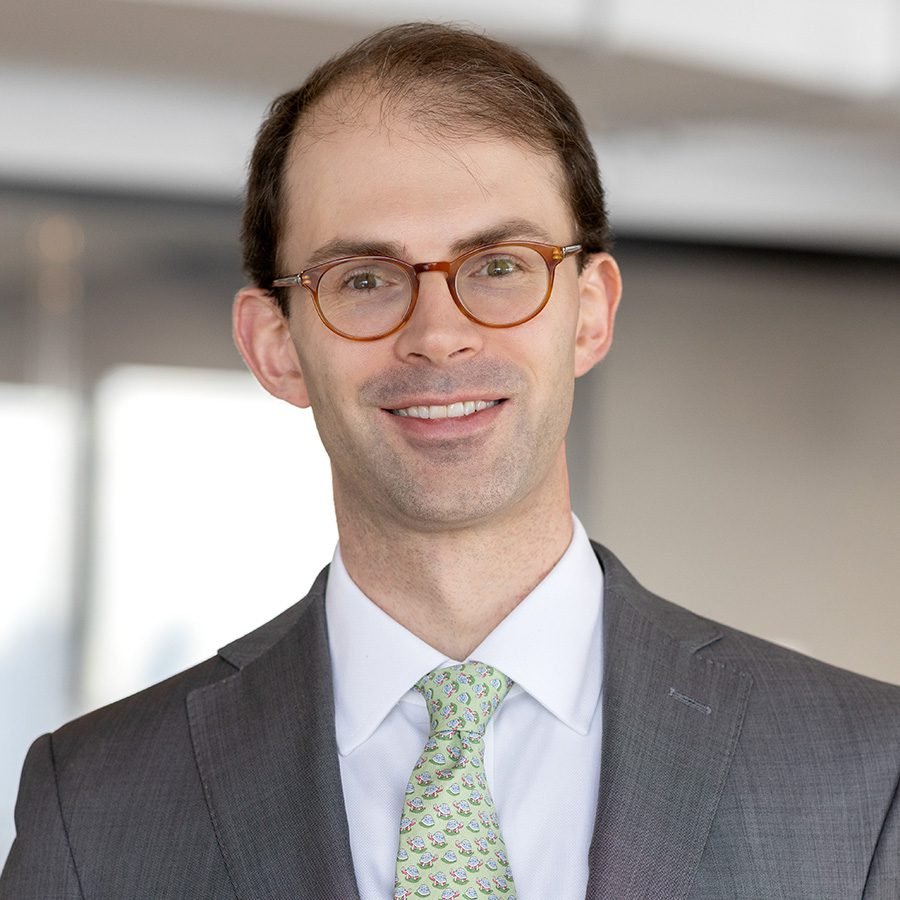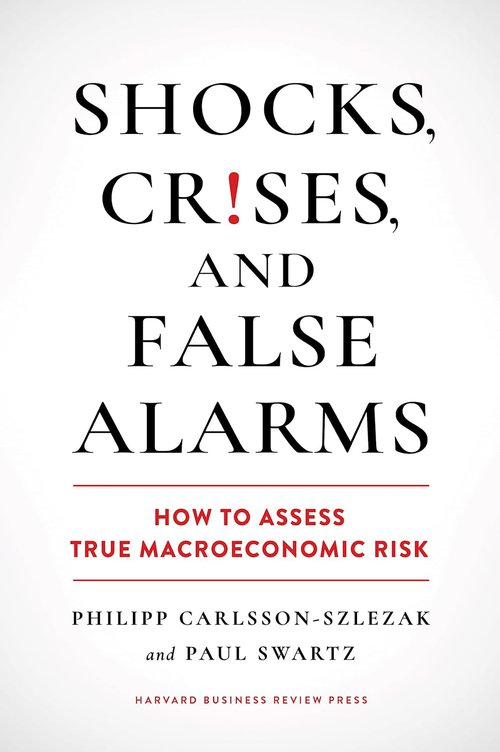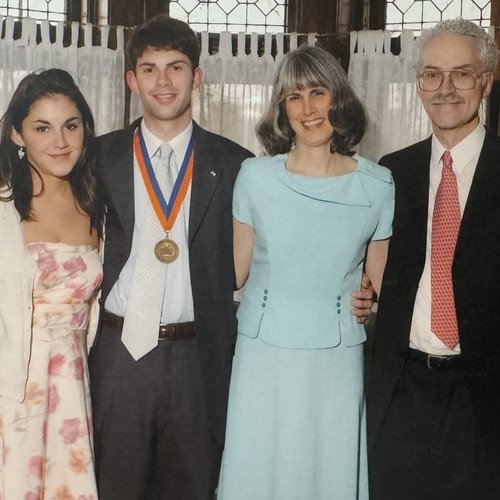5 Questions with Paul Swartz
Economics isn’t everything, says A&S board member and economist.

Often called an “optimistic economist,” Paul Swartz, College of Arts and Sciences (A&S) and Whitman class of 2005, member of the A&S Dean’s Advisory Board, and Senior Economist at the Boston Consulting Group, finds that this epithet, coined to contrast him from more gloom-and-doom economists in the news, might miss his point. In his new book, “Shocks, Crises, and False Alarms: How to Assess True Macroeconomic Risk” (Harvard Business Review Press, 2024), written with co-author Philipp Carlsson-Szlezak, Swartz makes the case for looking past the constant prognostications and toward a humbler, more nuanced and eclectic look at economic risk. A&S sat down to talk to Swartz about his book – and his local roots.
Q: Your book proposes a new approach to looking at the macroeconomy. What inspired you to write this book? Was there a single watershed moment or a string of events that led you to this thesis?
A: I often speak to leaders and investors across a broad spectrum of the economy – from consumer and technology firms to investors and government leaders – and a common angst I heard was that the economy was teetering on the edge. A feeling that was compounded by the constant doom-mongering in the financial press.

We’ve found that asking ‘what does it take’ and ‘how could that happen’ helps move us past fears about bad outcomes and toward an understanding of fundamental drivers. It seems that almost everybody has a hobby economist inside of them because they know it matters to their lives but they struggle to engage with it in a productive way. They don’t want to read piles of economics books, which tend to be either highly technical or very narrow in scope. We thought there was a way to cover the map of macro in an accessible, engaging, enlightening way that had a more rational and, ultimately, optimistic tone to it.
Q: To whom are you addressing this book: the economists, the layperson who wants their own understanding, or the media, whom you imply puts pressure on economists to make predictions?
A: While the book is written for investors and corporate leaders, I believe the book is widely accessible to interested and thoughtful readers. It is really for anyone who wants to build their intellectual muscles to engage with and interpret the ongoing economic debate. And while we’re not playing in the academic realm of economics, I hope that even academic economists would find value in the way we approach some of these topics.
With respect to the media, I don’t want to say we’re scolding journalists — I suspect many in the field feel similarly that the pressure of the business of attracting eyeballs and clicks doesn’t encourage and reward thoughtful commentary and calibrated analysis. We are trying to shine a light on this dynamic and suggest that when reading the news, one should be aware of it so you can insulate yourself from its biases.
Q: You call your approach “economic eclecticism.” How would you encourage someone pursuing economics adopt that approach – does it imply a general liberal arts education? Should business leaders also study literature and history?
A: This is a great question. While we did not set out with the intent of promoting the value of a general liberal arts education, that is, in some sense, where we ended up. To assess risk, one must have an open and creative mind that opportunistically seeks to pull from a broad knowledge base aware of context and circumstances. We are certainly not the first to say it, but to be a great economist requires being a historian, political scientist, mathematician, and so much more.
Take for instance the economy in early 2020. Activity had collapsed but the prospects for recovery weren’t really about the classic inputs into an economic model. It was more about understanding the politics of the Covid crisis and the nature of the response that was going to tell you a lot more about where the economy was going to end up in the short to medium run. Each challenge in macro will be – to one degree or another – unique. Thus, each time one must ask what is the context of this risk? What is the risk analogy? How can I build a coherent narrative based on this set of circumstances?
Q: How do you square the implication that people should maybe stop listening to economists so much? What does this mean for economists?
A: Perhaps the answer is people should stop listening to overconfident economists – and start to reclaim their own judgement, aware of the uncertainty that will always remain. We often tell a story about a well-known economist – F.A. Hayek – who won the Nobel prize in 1974. When he was awarded the prize, he took the opportunity to suggest that the prize should not have been created. His point was that it was a bad idea to endow an economist with so much prestige. Soon everyone would want to ask them about anything and everything — and much stock would be put in their answers. Whereas, when you award the prize for physics, no one’s going to ask the physicist about tax policy or health care policy or labor policy.
I suspect we can all think of instances where economists are called in for things well outside of their realm of expertise and they feel like they must say something, so they do. And while economists have a powerfully broad toolset for thinking about the world, when they speak from such a position of authority, the uncertainty and nuances are often lost. It is not economics that is the problem, but the overconfidence that is implied by the deference given to it.

Q: Since we are here in Syracuse, we’re interested in your journey from growing up in nearby Oswego. Was there something there that inspired you for your career journey?
A: Oswego was a great place to grow up. I was fortunate to be back a few weeks ago and give a talk at The River’s End Bookstore where my high school economics teacher interviewed me. Before the event my parents asked me if I was nervous. I laughed and said I think this will be the friendliest audience I’m ever going to have. The fact that quite a number of my high school teachers showed up to the event speaks to the care and quality of the education I received. That certainly remains the cornerstone that my career is built on.
And while I’m not a specialist about the economy of Oswego, I remember even in high school thinking about the city in economic terms. Oswego’s boom with the Erie canal. The boom that came when the nuclear plants were built. And then a long period of struggle as manufacturing left – from Carrier to Miller to Nestle. I remember how those plants being shut down affected parents of friends. I’ve worked in the NYC metro area for 20 years, but those are the stories in the back of my mind when I read about the excitement over Micron. Economics is more than just about GDP and the stock market – it has outsized influence on the lives of us all.
Media Contact
Lesley Porcelli
